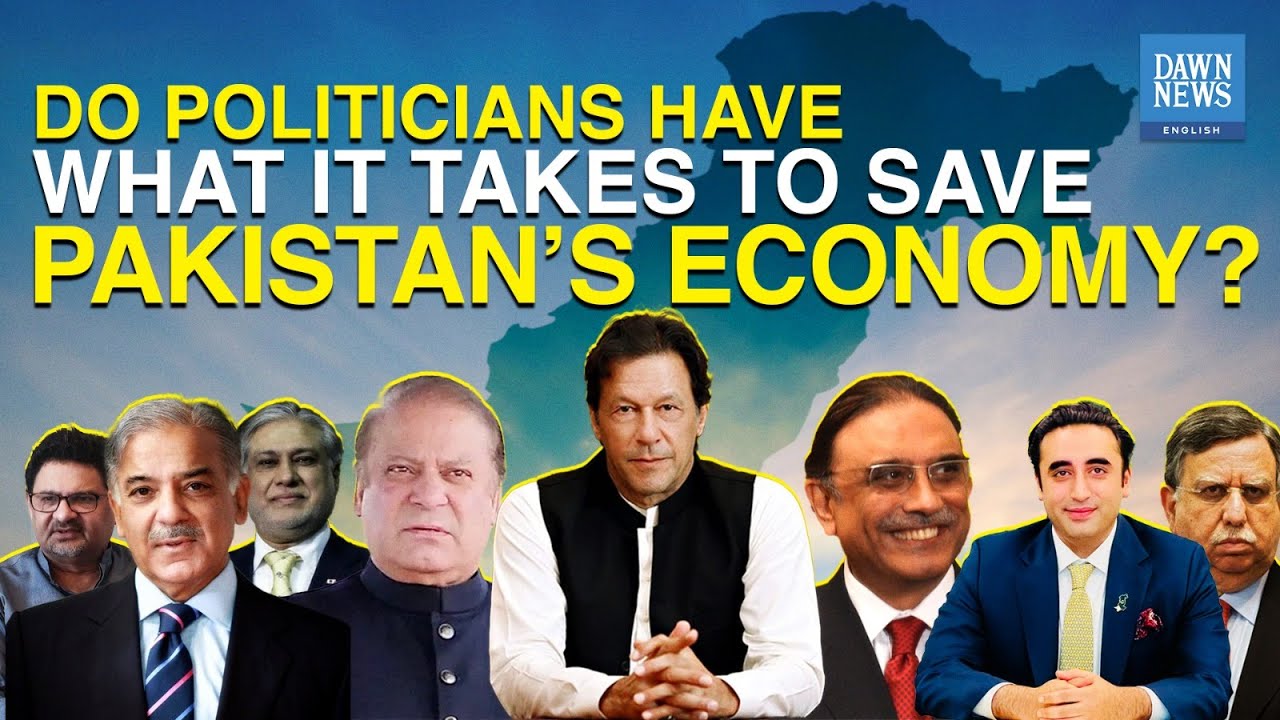Do Politicians Have What It Takes To Save Pakistan's Economy? | Moneycurve | Dawn News English
Unleash Your Creative Genius with MuseMind: Your AI-Powered Content Creation Copilot. Try now! 🚀
Introduction
In recent weeks, the political landscape in Pakistan has become increasingly tumultuous. The ruling Alliance, led by the PML-N, and the opposition PTI have taken their fight to the streets, leaving their inflation-stricken citizens to bear the brunt of their political agenda. As the economy sinks deeper into crisis, it seems that politicians are more concerned with protecting their narrow political interests than with the welfare of the people they are meant to serve. This has led to growing divisions within the military and the judiciary, further exacerbating the polarization that has already taken hold in society. With Parliament and the executive branch becoming increasingly dysfunctional, the question arises: do those on either side of the political fence have what it takes to save the state of Pakistan?
A Crisis of Economic Proportions
The current economic situation in Pakistan is far more serious than anything the country has faced in the past. It is plagued by deep-rooted structural issues that require expertise, commitment, and continuity to address. The current shape of the economy is unsustainable, as it fails to produce enough exports, jobs, or dollars. In order to overcome these challenges, a painful adjustment is necessary. The question then becomes: who will lead this adjustment?
The Need for Professionalism
For years, politicians in Pakistan have grappled with economic issues without fully understanding or addressing the underlying problems. Instead of developing a competitive economy that can stand up to global competition, the country has relied on its geopolitical importance to secure aid and trade concessions. This has created a false sense of security, with some power players believing that Pakistan is "too big to fail." However, it is time to face the reality that professionals, not politicians, are better equipped to manage the economy.
Redefining Roles and Responsibilities
Politicians should focus on setting policy directions and targets, rather than micromanaging the economy. Decision-making should be left to competent institutions, such as the Board of Investment, privatization commissions, and the planning commission. These institutions should be run by professionals who have the expertise and competence to instill confidence in the markets. It is crucial to understand that politicians have no business conducting transactions or managing economic affairs. Their role is to provide the necessary policy framework and create an environment conducive to economic growth.
The Populist and Political Nature of Economics
In Pakistan, economics has become highly populist and political. Cabinet decisions are often made without proper deliberation, and the focus is on short-term gains rather than long-term sustainability. This mindset needs to change. The ruling elites must be prepared for a shock, as the country can no longer afford to rely on foreign handouts. Deregulation and a shift towards a more professional approach are necessary to overcome the economic challenges that lie ahead.
Conclusion
The political crisis in Pakistan has reached a boiling point, with politicians prioritizing their own interests over the welfare of the people. The economic situation is dire, requiring structural changes and professional expertise to navigate. It is time to redefine the roles and responsibilities of politicians and professionals in managing the economy. Politicians should focus on setting policy directions, while professionals should handle the intricacies of economic affairs. By embracing professionalism and adopting a long-term perspective, Pakistan can overcome its current challenges and pave the way for a brighter future.

Related Recaps
- LA RESISTENCIA - Ponce pega a Sergio Bezos a la pared con celo | #LaResistencia 18.04.2023
- Kyle Hamilton breaks Ravens Record with 3 Sacks in the First Half!
- Master 2023 by TikTok | TẬP 1 OFFICIAL | GK ViruSs, Huỳnh Lập, Quỳnh Anh Shyn, Mai Phương
- 🔴LIVE: BLAST PARIS MAJOR 2023 BẢNG B RMR CHÂU ÂU - NGÀY 2 | CƠ HỘI NÀO CHO SAO ĐỎ ĐAN MẠCH?!
- AQUA JOINS A REALITY DATING SHOW | Oshi No Ko Episode 5 Reaction